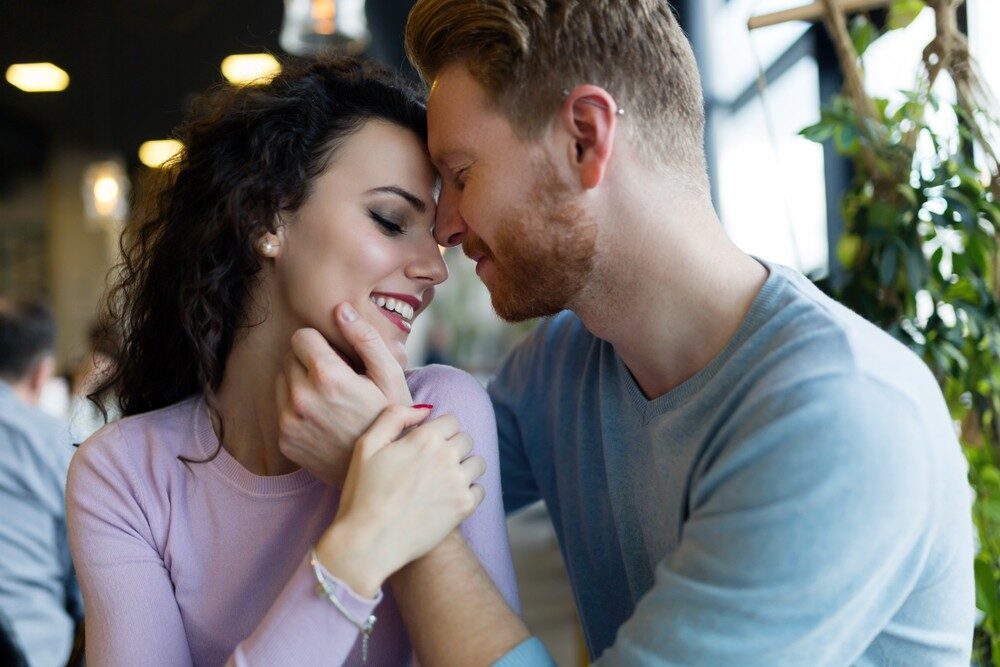
Kissing: a universal symbol of love, affection, and intimacy. But beyond the butterflies and fireworks, this seemingly simple act triggers a cascade of surprising physiological and emotional effects within us. It’s more than just a romantic gesture; kissing is a complex biological exchange with a range of unexpected side effects. So, pucker up and get ready to explore the fascinating science behind a good smooch!
Kissing’s Impact on Hormones
Kissing isn’t just about physical touch; it’s a biochemical dance. When lips meet, a symphony of hormones gets released, each playing a specific role:
- Oxytocin: Often dubbed the “love hormone,” oxytocin levels rise during kissing. This hormone fosters feelings of bonding, trust, and attachment, strengthening the emotional connection between partners.
- Dopamine: The “feel-good” hormone, dopamine, surges during a kiss. This surge creates a sense of pleasure and reward, making us crave more of that smooching action.
- Adrenaline: Get ready for a mini-adrenaline rush! Kissing can elevate adrenaline levels, leading to a slight increase in heart rate and a feeling of excitement.
Kissing and the Stress Buster Effect
Feeling stressed? Pucker up! The combination of hormones released during kissing can have a calming effect, reducing stress hormones like cortisol. This means a good smooch can be a natural stress reliever, leaving you feeling more relaxed and centered.
Pain Relief Through Passion?
Believe it or not, kissing might offer a surprising pain-relieving effect. The release of endorphins during a kiss, natural painkillers produced by the body, can help alleviate minor aches and discomfort. So, next time you have a headache, consider a kiss instead of reaching for the medicine cabinet (although, for severe pain, a doctor’s visit is still recommended!).
The Physical Side Effects of Kissing

Kissing isn’t just about emotions and hormones; it has a physical impact on our bodies as well.
- Boosting the Immune System: A passionate kiss can involve the exchange of saliva, which contains a small amount of bacteria. This exposure, in a controlled way, can actually help strengthen your immune system by introducing it to new microbes, helping it learn to fight off potential invaders. (Of course, kissing a complete stranger might not be the best way to achieve this benefit!)
- Improved Muscle Tone: Kissing can be a workout for your facial muscles! The various movements involved in a kiss, from pursing your lips to using your tongue, can provide a subtle exercise for your facial muscles, potentially leading to improved tone and definition over time.
- Enhanced Sense of Smell: Kissing can heighten your sense of smell. Pheromones, chemical signals released by humans, can be detected through smell during a kiss. These pheromones can influence attraction and play a role in partner selection.
Kissing and the Calorie Countdown
Here’s a fun fact: a passionate kiss can burn a few calories! The effort involved in the various muscle movements during a kiss can burn a small amount of energy, although it’s certainly not a replacement for a workout session.
The Many Meanings of a Kiss
Kissing isn’t just about romantic love. It can express a variety of emotions and social cues:
- Greeting: In some cultures, a kiss on the cheek is a common way to greet friends, family, or acquaintances.
- Respect: A kiss on the hand can convey respect and admiration, particularly towards someone of higher social standing.
- Comfort: A gentle kiss on the forehead can offer comfort and support to a loved one who is feeling down.
- Farewell: A kiss goodbye can express affection and longing until you meet again.
Kissing and Cultural Considerations
The meaning and etiquette of kissing can vary greatly across cultures. Here are a few things to keep in mind:
- Public Displays of Affection: While a passionate kiss might be commonplace in one culture, it could be considered offensive in another. Be mindful of cultural norms when expressing affection in public.
- Number of Kisses: The number of kisses exchanged as a greeting can vary. In some cultures, a single kiss on one cheek is sufficient, while others involve kisses on both cheeks. Research local customs to avoid any awkward situations.
- Kissing on the Lips: Lip kisses are generally reserved for romantic partners in most cultures.
Kissing and Your Health
While kissing offers some potential health benefits, it’s important to consider a few downsides:
- Spreading Germs: Kissing can transmit germs and viruses, particularly when one partner is sick. Common illnesses like the cold or flu can easily be spread through saliva exchange. Practicing good hygiene and avoiding kissing when sick can help mitigate this risk.
- Potential Allergic Reactions: Some people may experience allergic reactions to certain substances in their partner’s saliva, leading to symptoms like itching, swelling, or rash. If you experience such reactions after kissing, consult a doctor to determine the cause.
- Mono “The Kissing Disease”: Mononucleosis, also known as “mono,” is a viral infection often spread through saliva exchange. While not everyone who kisses someone with mono will contract it, it’s a possibility to consider.
The Psychological Impact of Kissing

Kissing isn’t just about physical sensations; it has a powerful psychological impact as well.
- Deepening Bonds: The intimacy and vulnerability involved in kissing can strengthen emotional bonds between partners. The positive emotions associated with kissing can lead to increased feelings of closeness and trust.
- Enhanced Self-Esteem: A good kiss can do wonders for your self-esteem! The feeling of being desired and appreciated by a partner can have a positive impact on how you see yourself.
- Boosting Confidence: Sharing a kiss with someone you care about can boost your confidence and make you feel more attractive.
A Historical Perspective
The practice of kissing has a long and fascinating history:
- Ancient Civilizations: Evidence suggests kissing was practiced in ancient civilizations like Egypt and Rome, though its meaning likely differed from our modern interpretation.
- The Middle Ages: Kissing became associated with courtly love and chivalry during the Middle Ages.
- Victorian Era: Kissing in public became more restricted during the Victorian era, with stricter social norms.
- Modern Times: In the modern world, kissing has become a more open and widely accepted expression of affection.
Exploring Different Kissing Styles
The world of kissing extends beyond a simple smooch! Different cultures and contexts have their own unique kissing styles:
- The French Kiss: A passionate kiss involving open mouths and tongue contact.
- The Eskimo Kiss: A gentle rub of noses, often used as a greeting in some cultures.
- The Butterfly Kiss: Two people flutter their eyelashes together.
- The Hand Kiss: A sign of respect and admiration, typically directed towards someone of higher social standing.
Conclusion
From the hormonal dance to the surprising health implications, kissing is a complex act with a range of fascinating side effects. It’s a biological exchange, a powerful emotional expression, and a cultural phenomenon with a rich history. So, the next time you share a kiss, take a moment to appreciate the science and wonder behind this simple yet profound human gesture. Pucker up and explore the world of kissing – it might surprise you!
You May Also Like….
- Beyond “Happily Ever After”: Ways Marriage Can Impact Your Health
- Clear Your Mind: A Beginner’s Guide to Meditation
- Brainwaves Gone Wild: The Most Intriguing Neurological Conditions
Frequently Asked Questions
Q1: Is it okay to kiss someone on the first date?
There’s no one-size-fits-all answer! It depends on the comfort level of both partners and cultural norms. Communication is key – if you’re unsure, it’s always best to ask before leaning in for a kiss.
Q2: Why do some people feel shy about kissing?
Kissing can be an intimate act, and it’s natural to feel shy or nervous, especially during the early stages of a relationship. Practice, experience, and open communication with your partner can help ease any anxieties.
Q3: What if I don’t enjoy kissing?
Kissing is a personal preference. If you don’t enjoy it, it’s perfectly okay to communicate this to your partner. There are many ways to express affection that don’t involve kissing.
Q4: Is kissing important in a relationship?
While not necessarily essential, kissing can be a significant part of a romantic relationship. It’s a way to express affection, passion, and intimacy. However, a healthy relationship can exist without kissing as long as both partners are happy and fulfilled.
Q5: How can I improve my kissing technique?
Relaxation and confidence are key! Focus on being present in the moment and responding to your partner’s cues. Pay attention to breath freshness and prioritize good oral hygiene. Start slow and gentle, gradually exploring different styles based on your partner’s comfort level. Communication is always key – don’t be afraid to ask your partner for feedback or tell them what feels good!


Educating